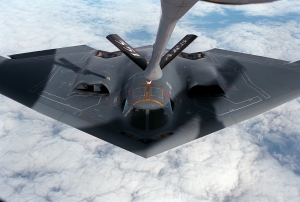Extended Deterrence Across the Continuum of Conflict

Speaker: Dr. Maximilian Hoell (LLNL)
Date: 20 February 2024
Speaker Session Summary
SMA hosted a speaker session with Dr. Maximilian Hoell (LLNL) as part of its SMA “Strategic Deterrence Frameworks” (SDF) Speaker Series.
Since the end of the Cold War, US extended deterrence has undergone significant evolution, initially appearing to diminish in importance with the perceived decrease in the need for a robust nuclear arsenal following the collapse of the Soviet Union. However, China’s fast-growing nuclear arsenal and proliferation of nuclear weapons among adversarial nations, like North Korea, has prompted a reevaluation of US strategic posture. The urgency to reinforce America’s strategic advantages or risk losing them has become increasingly apparent. In a crisis, the efficacy and credibility of US extended deterrence would be tested globally. Dr. Hoell asserts that in the event of failed immediate deterrence, the willingness of the United States to employ nuclear weapons on behalf of others would be laid bare, potentially shaping future confrontations.
Dr. Hoell underscores the contentious nature of US extended deterrence measures and actions, particularly in the eyes of US adversaries. Nevertheless, the effective deployment of extended deterrence can dissuade adversary leaders from confrontations and may foster cooperation in certain instances. During the presentation, Dr. Hoell delineated four distinct stages across the conflict continuum: peacetime, strategic competition, crisis, and wartime. He emphasized that the primary objective of deterrence is to mitigate the likelihood of escalation at each stage. A cornerstone of US extended deterrence strategy lies in its collaboration with allies, including NATO and the Republic of Korea (ROK). For example, as tensions escalate in the Indo-Pacific region, the ROK has sought increased US extended deterrence. However, Dr. Hoell cautions that resource allocation must be carefully deliberated, as shifting resources to the Indo-Pacific could potentially detract from support for European allies within NATO. Ultimately, strategic competition erodes the credibility of US assurances as adversaries gain strategic advantages, posing a challenge to America’s ability to safeguard its own interests.
Speaker Session Recording
Briefing Materials
Report: https://nsiteam.com/smaspeakerseries_20february2024/
Biography:
Dr. Maximilian Hoell is a postdoctoral research fellow at the Center for Global Security Research at the Lawrence Livermore National Laboratory. His current research includes the nuclear diplomacy of the P5 states, the wider WMD non-proliferation regimes, and the U.S. policy of extended deterrence in the Euro-Atlantic and Indo-Pacific regions. Hoell was previously a senior policy fellow at the European Leadership Network, an assistant professor of politics and international relations at Northeastern University London, and a lecturer and undergraduate programs director at Université Paris Dauphine – PSL, London campus. He holds a Ph.D. from University College London, an MS.c. from the London School of Economics, a postgraduate diploma from the University of Montpellier, and a B.A. from the University of Oxford.
This speaker session supported SMA’s Strategic Deterrence Frameworks (SDF) project. For additional speaker sessions and project publications, please visit the SDF project page.
Comments